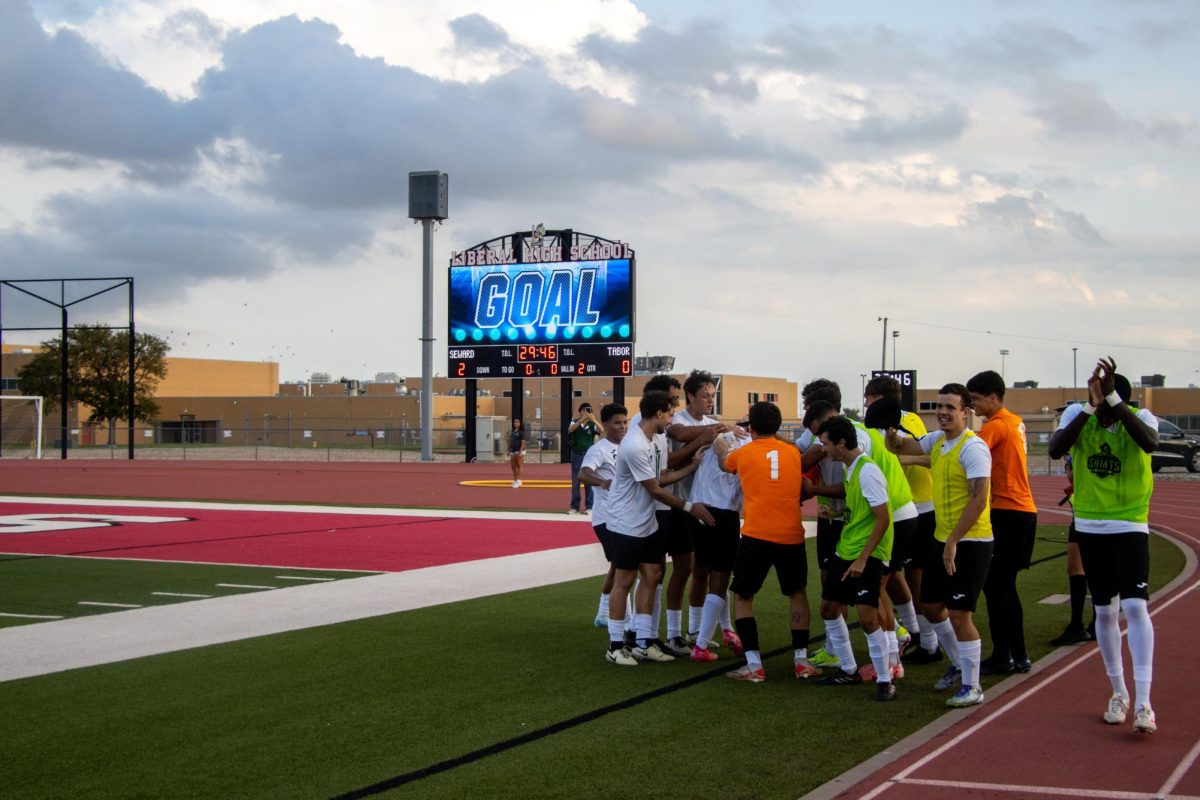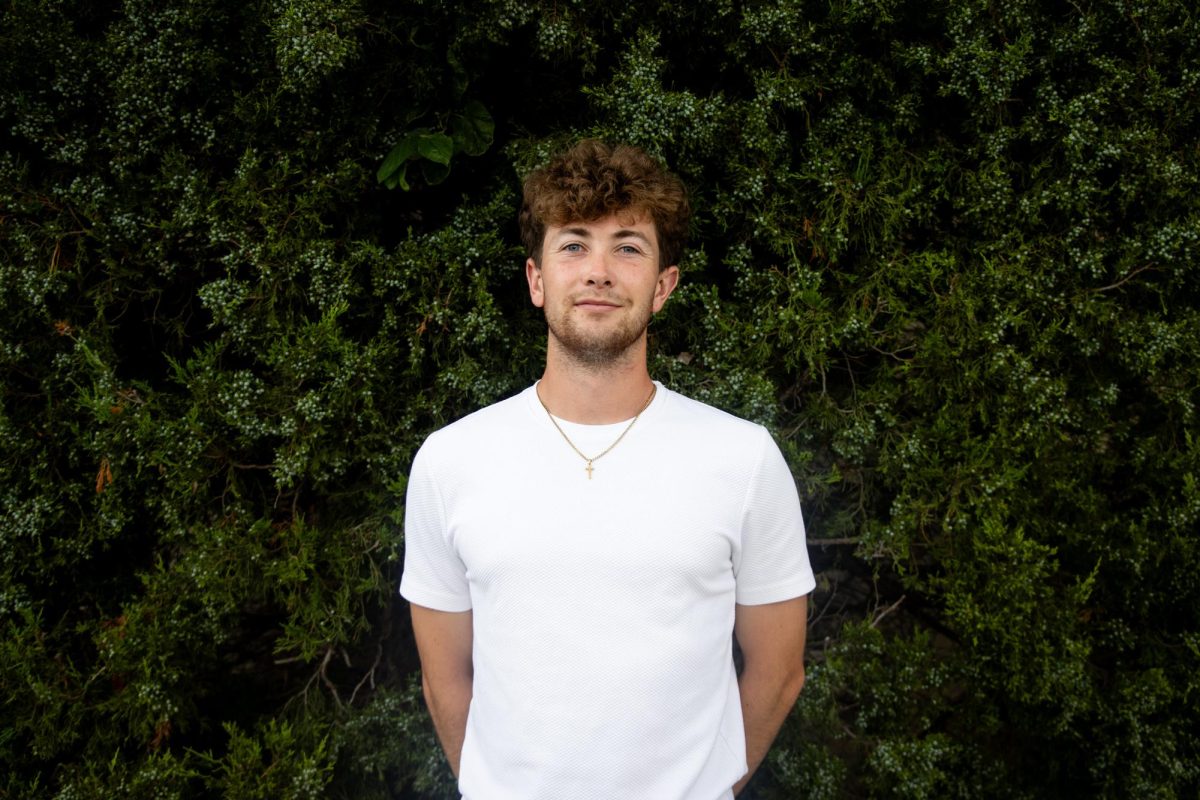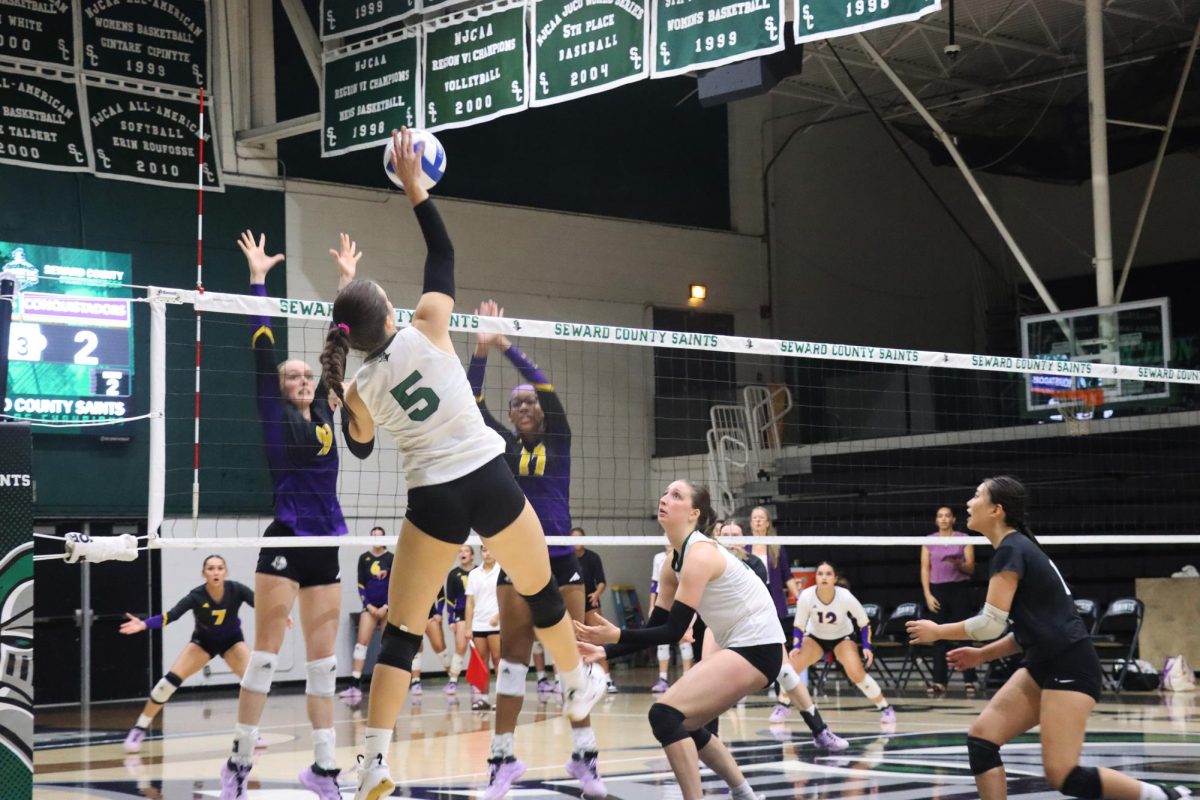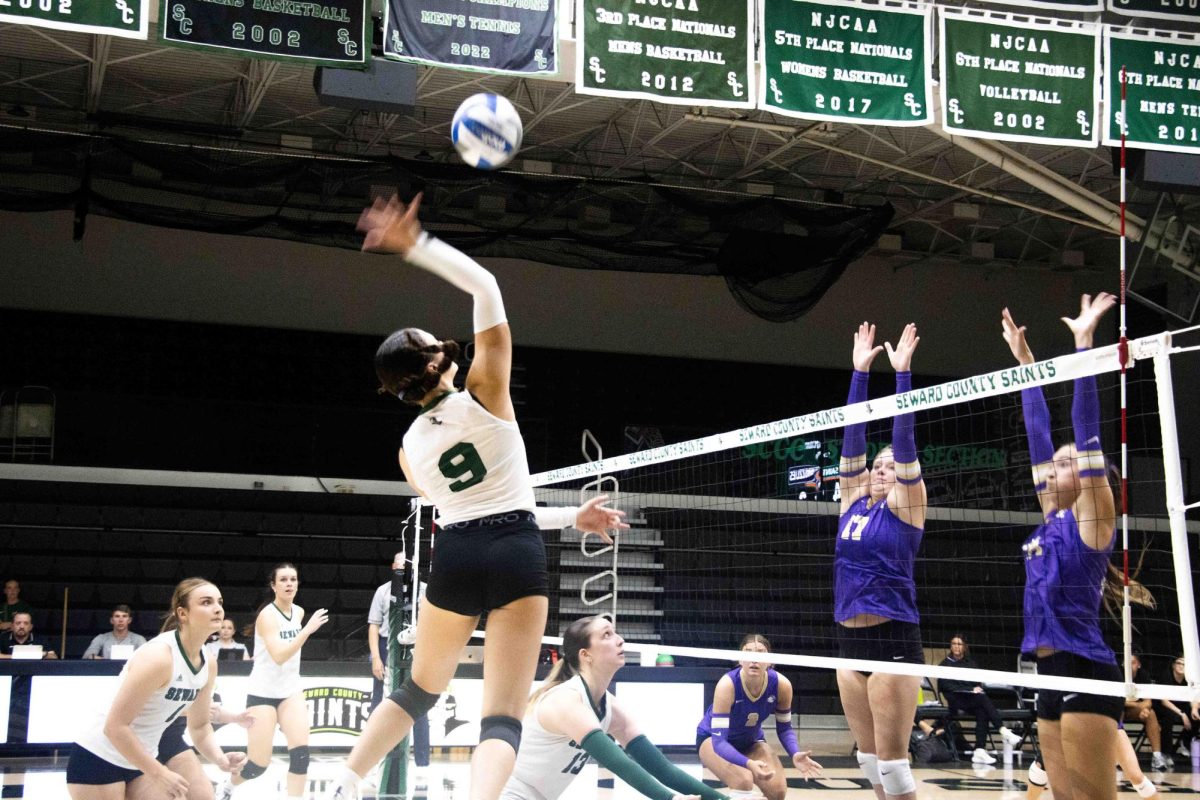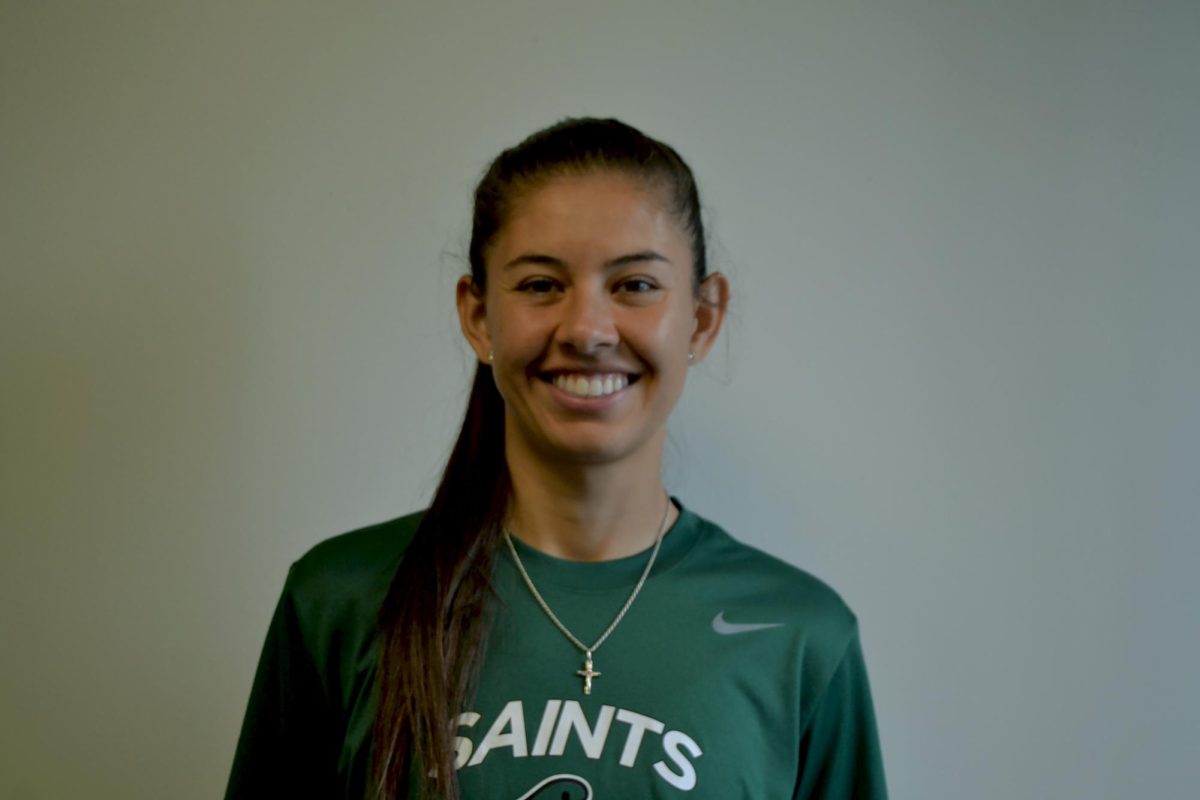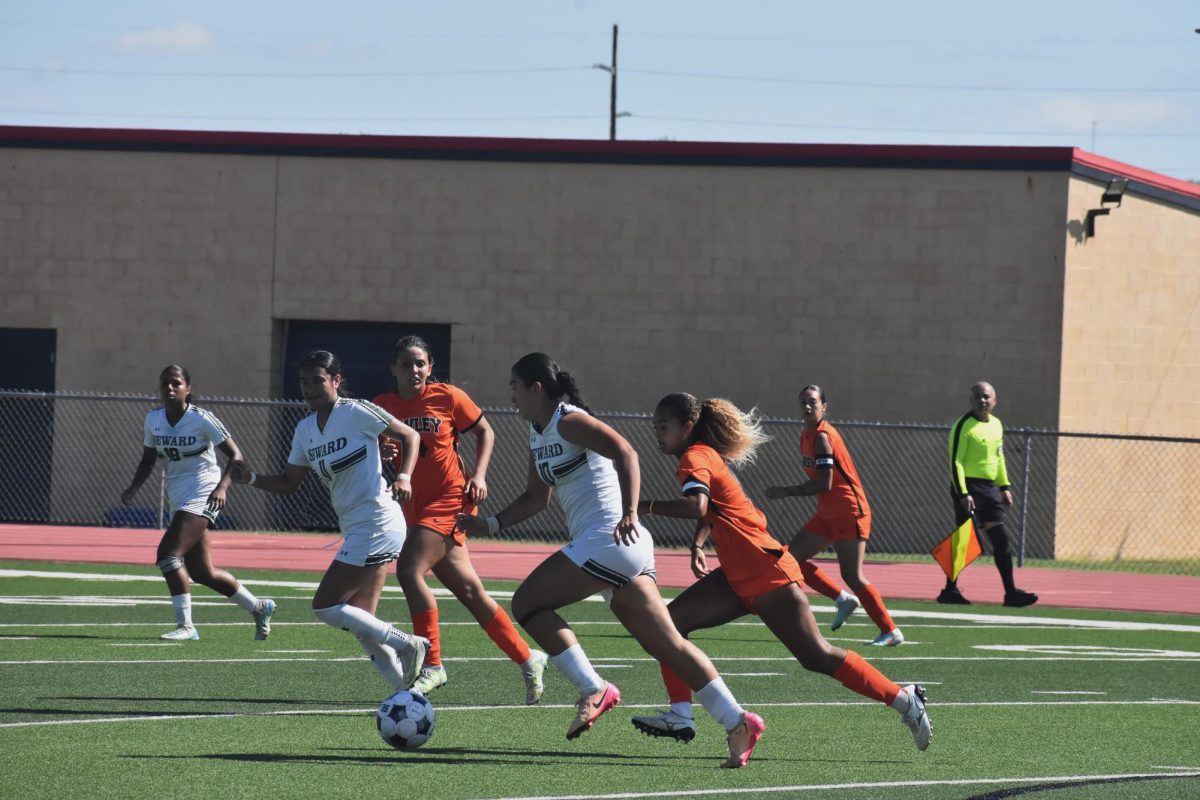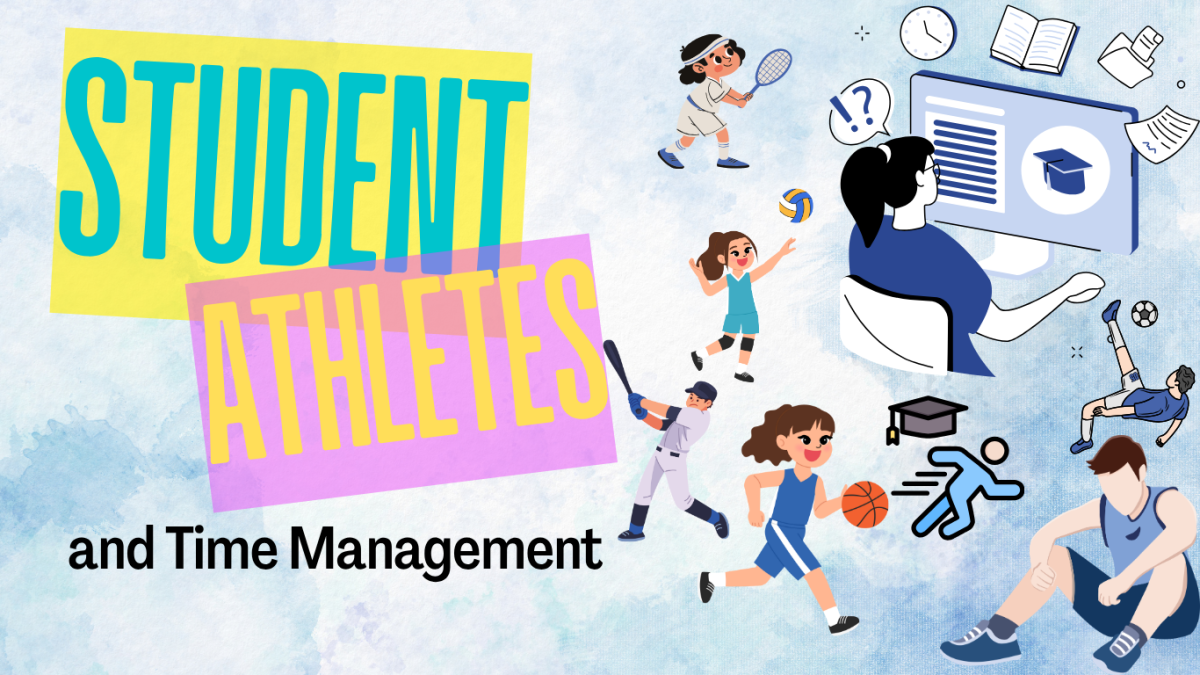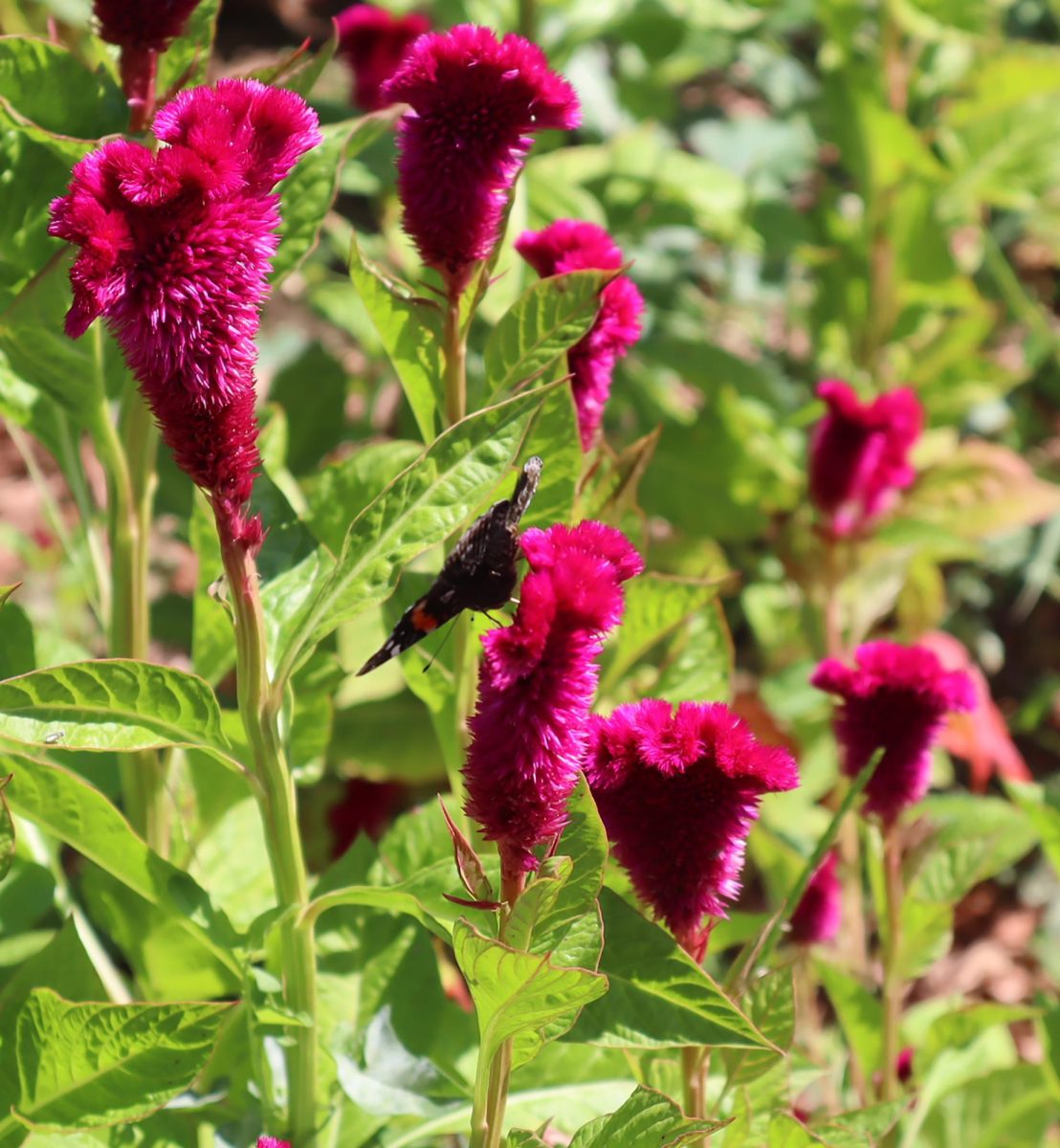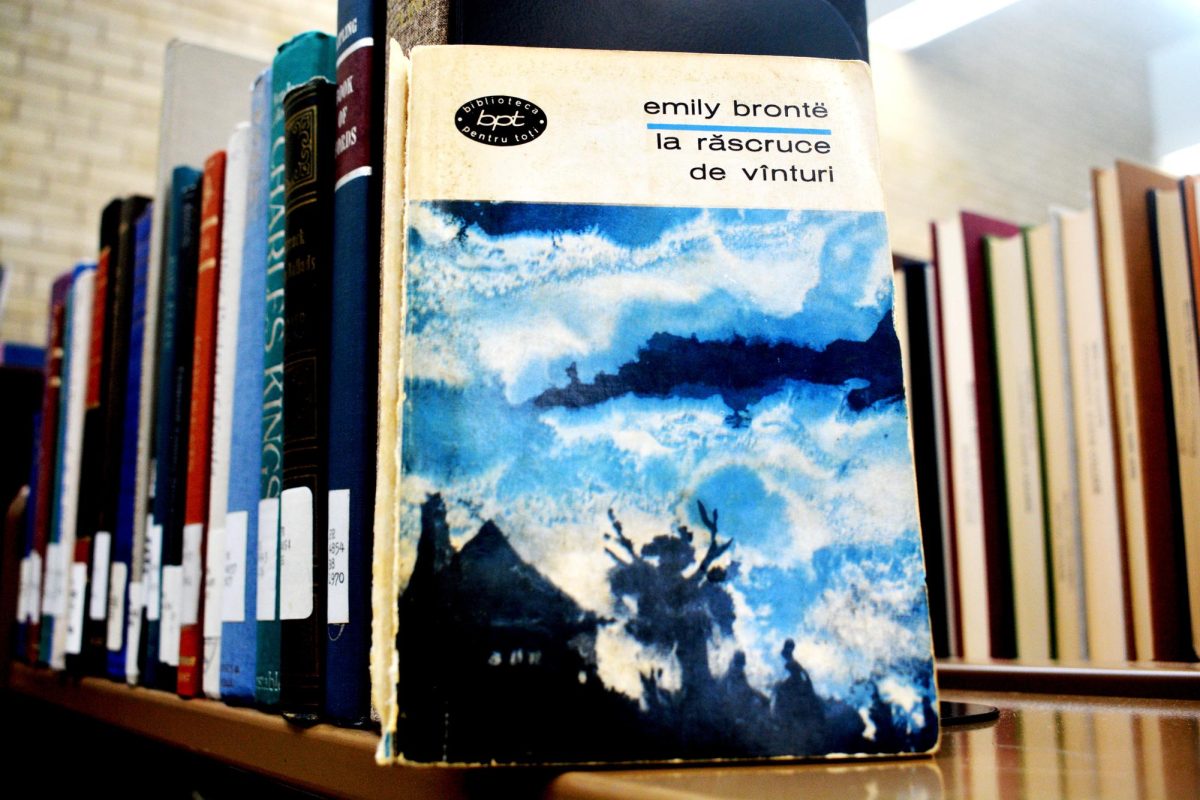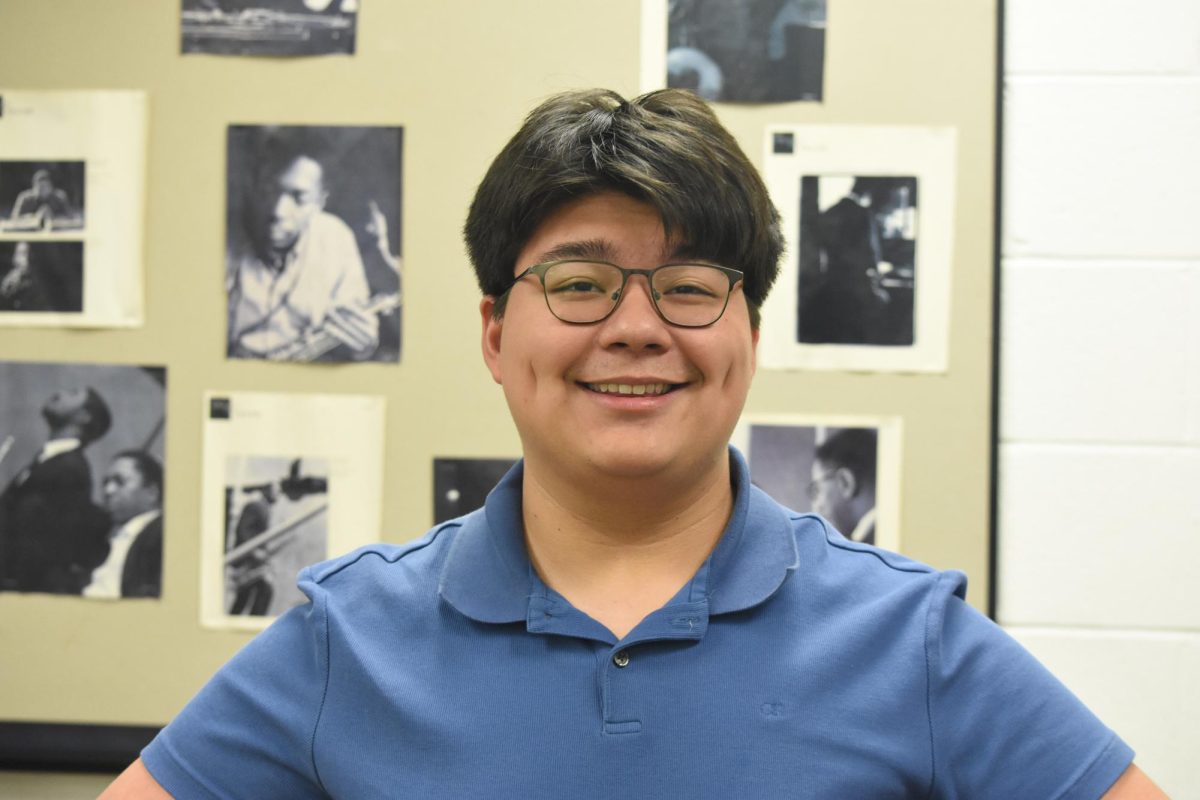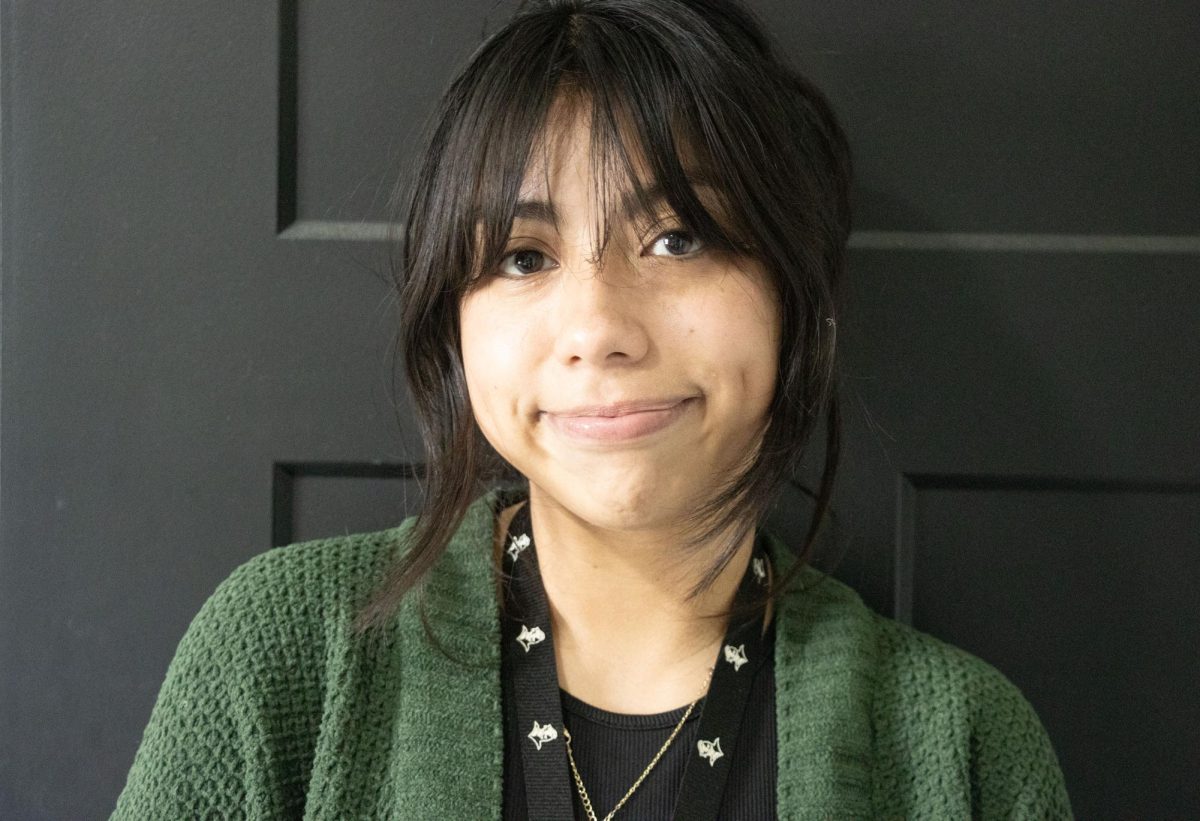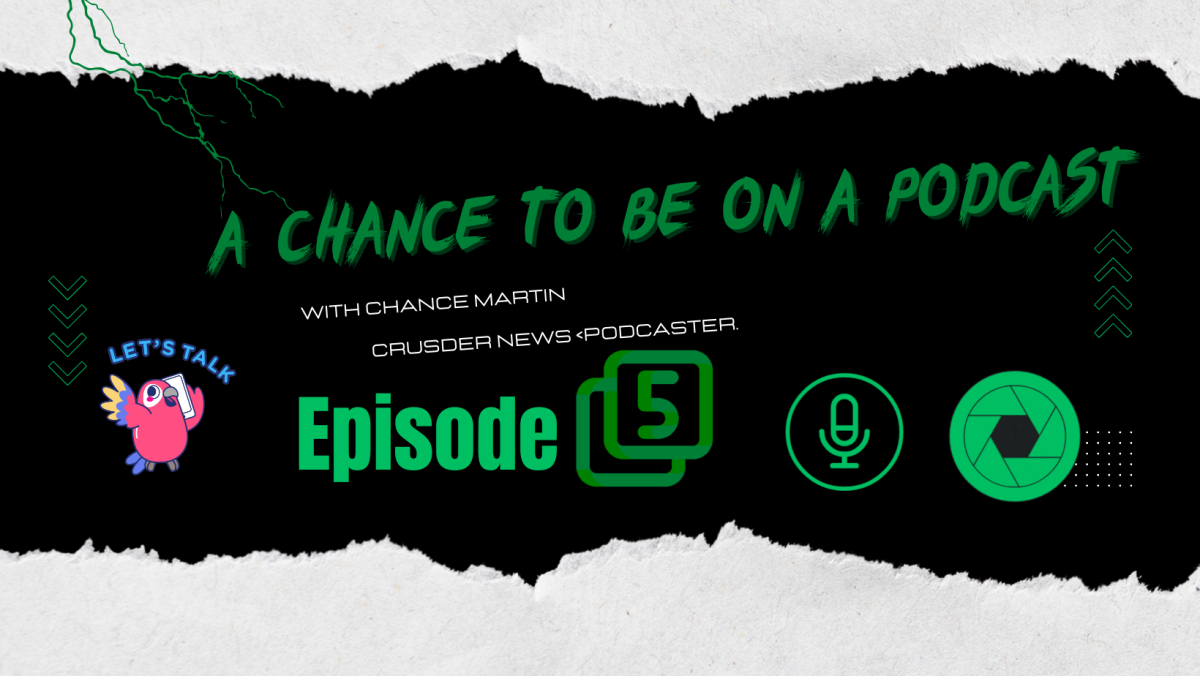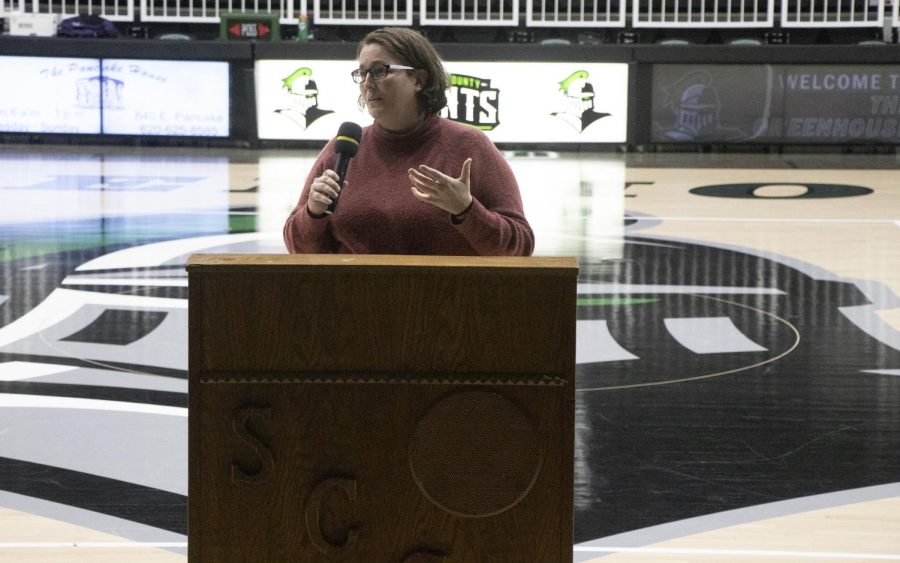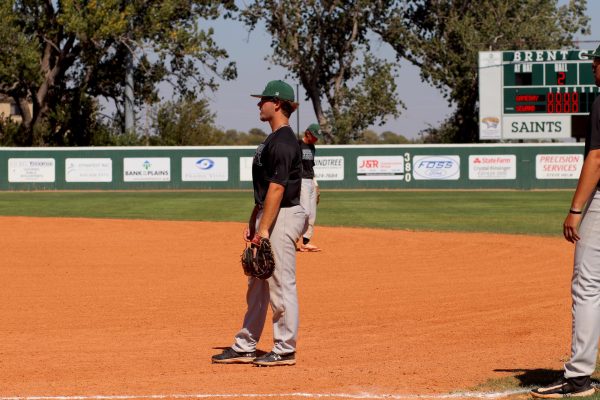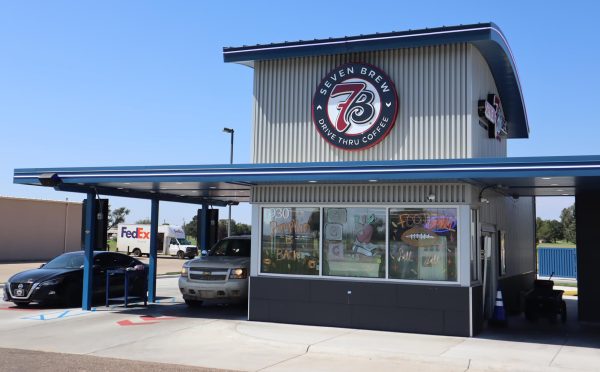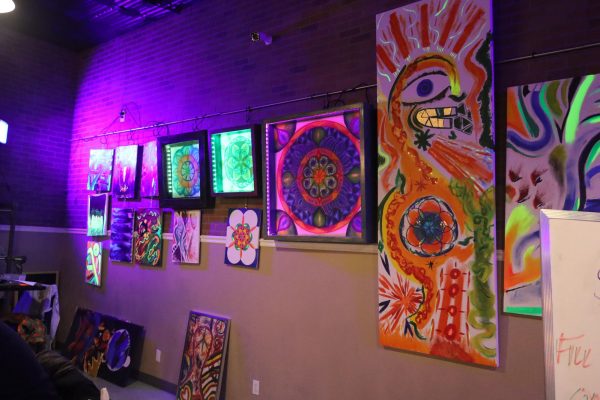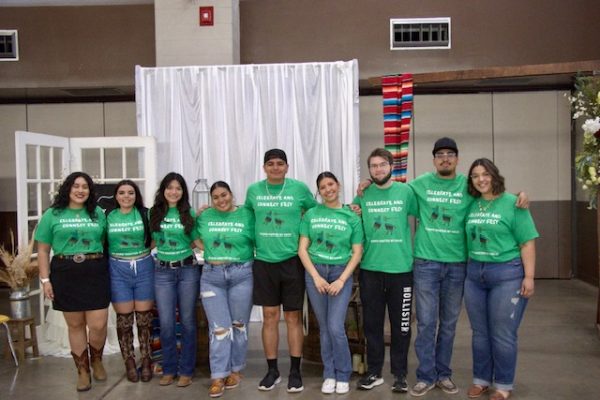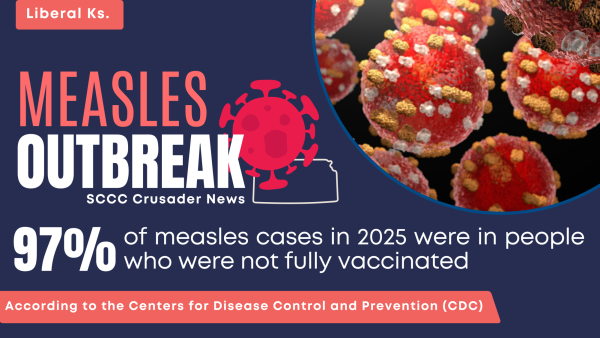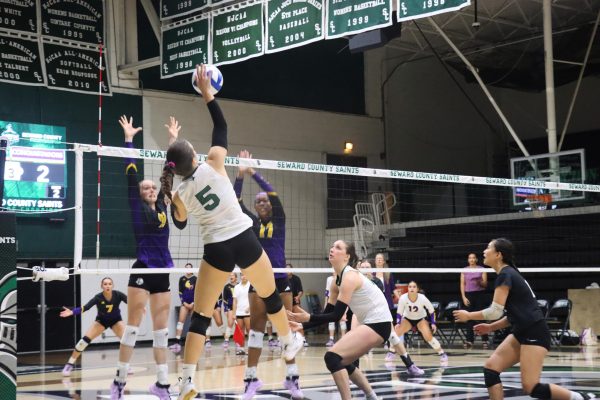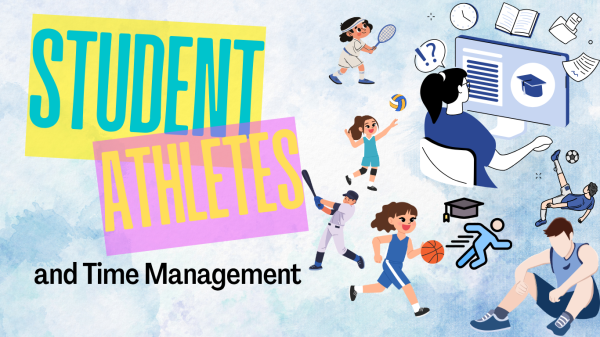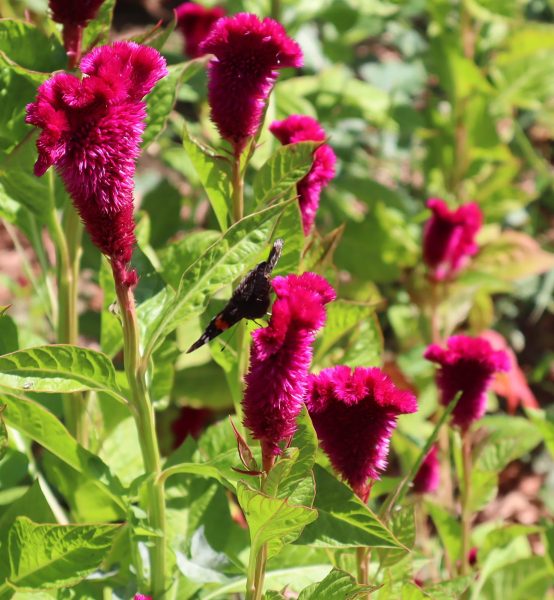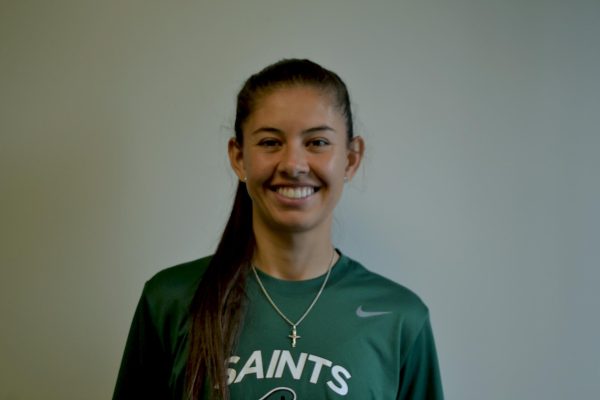Greenhouse welcomes back a champion
Anne Weese is on the court again, but this time to talk about mental health
Anne Weese, director of mental health and sports psychology for K-State, discusses the importance of self-awareness and mindfulness practices.
It’s okay to not be okay and ask for help.
Students and staff heard this message from Anne Weese, director of mental health and sports psychology at Kansas State University, in the Greenhouse on Feb. 11. The 2001-02 women’s basketball team member shared “The How and Why of Mental Health.” The Seward County Community College alum said she “jumped at the opportunity” to return and share some of her knowledge of mental health.
Weese’s presentation focused on reframing one’s thought process to “be kinder to yourself.” Something Weese wanted the audience to leave with was the idea that “you’re as prepared as you will ever be” and how breathing techniques and using all five senses can center one during hard times.
“My freshman year I wanted to quit basketball…” Weese said. She pointed up to the banner that showcases the NAACP national championship and added, “You don’t see that in the banner.”
Weese has presented variations of “The How and Why of Mental Health” for athletes. She previously focused on showcasing how to incorporate mental health awareness into practices and teamwork but changed it up just for SCCC by including anyone in the community and all age groups.
Weese wanted the audience to recognize the importance of self-awareness and mindfulness practices. She also talked about the humanness of mental health and how “you can be a high performing athlete at the Olympic level and you’re still gonna have the same stressors and struggles as us normal folks have.”
Coming back to Liberal was a bonus for Weese.
“It’s so exciting to be back just in Liberal, campus, and the Greenhouse of course… It’s nice to be back but anytime I present I get nervous,” Weese joked. “ I’m having flashbacks to the pregame jitters and the pre-practice nerves thinking about having all those eyes in the Greenhouse on me.”
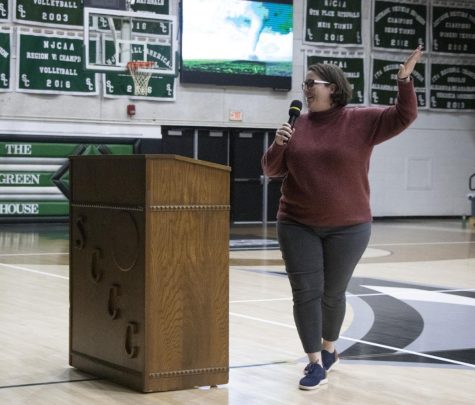
The former Lady Saint spent more time on campus than just the presentation. Andrea Tribble, a psychology major from Minneapolis, Minnesota, had the opportunity to eat dinner with Weese before her presentation.
“I got to have dinner with her tonight and have a conversation with her about her work and everything – that really intrigued me,” said Tribble. “You know mental health is very important, especially as a student-athlete.”
An image in Weese’s presentation that resonated with Tribble was one of a tornado. Weese used it to show how one’s thinking can change the situation drastically. For Tribble, this was the biggest takeaway from the presentation and “how your thoughts can change how you react to different situations.”
“That was the biggest thing – like controlling my thoughts and how I perceive stuff,” said Tribble
A question and answer time with Weese was opened up to the entire audience. Tatum Winters, a sports medicine major from Texhoma, Oklahoma, resonated with something Weese said during this portion.
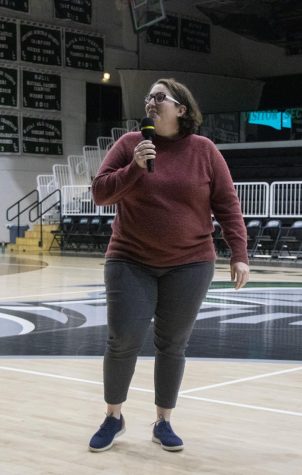
(Jessica Madrigal )
“She talked about finding the support system. If you have something going on – to find that support system…,” said Winters.
Melissa Alvarez, an art major from Guymon, Oklahoma, thought Weese was “so real and passionate.” Alvarez shared that Weese is someone that she would like to be like when she grows up.
“Did you hear it in her voice? She’s passionate and look [over] there …” Alvarez said pointing to the guest speaker who stayed after to talk with individuals. “She’s still here! The fact that she just came as she was. She said ‘I took so much from Seward,’ I was like me, too. I hope to be someone like her.”
For Alvarez, it’s not too late for her to reconsider her major after attending Weese’s presentation.
“It’s never too late to change your major, you know? Now I’m really reconsidering my major.”
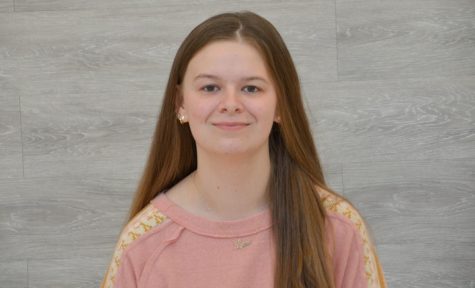
Laura “Gracie” Gillespie is a 19-year-old sophomore majoring in biology. She was born and raised in Stevens County in...
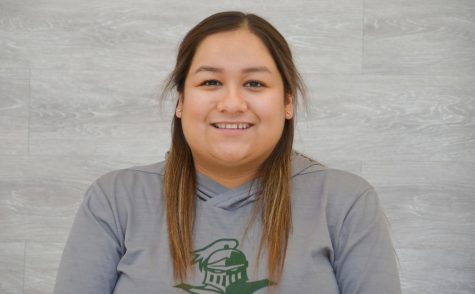
Jessica Madrigal is a 19-year-old sophomore from Spearman, Texas. Madrigal is currently on the cheer team and serves as an...


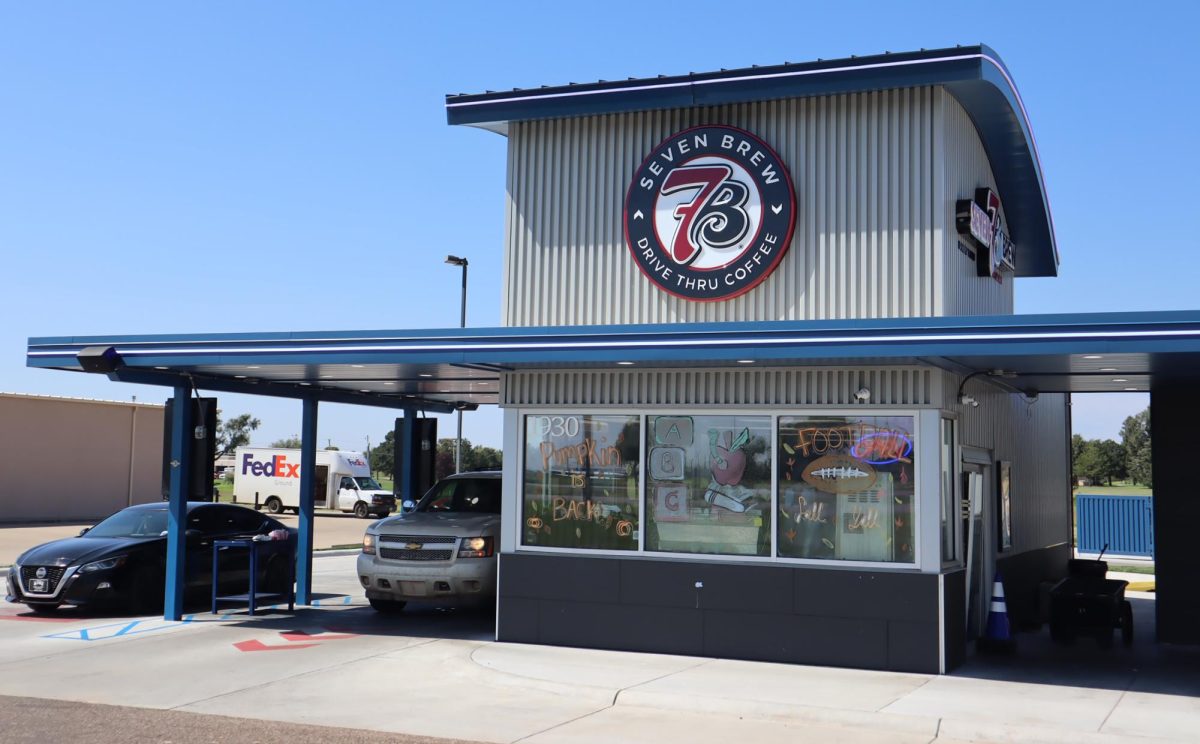
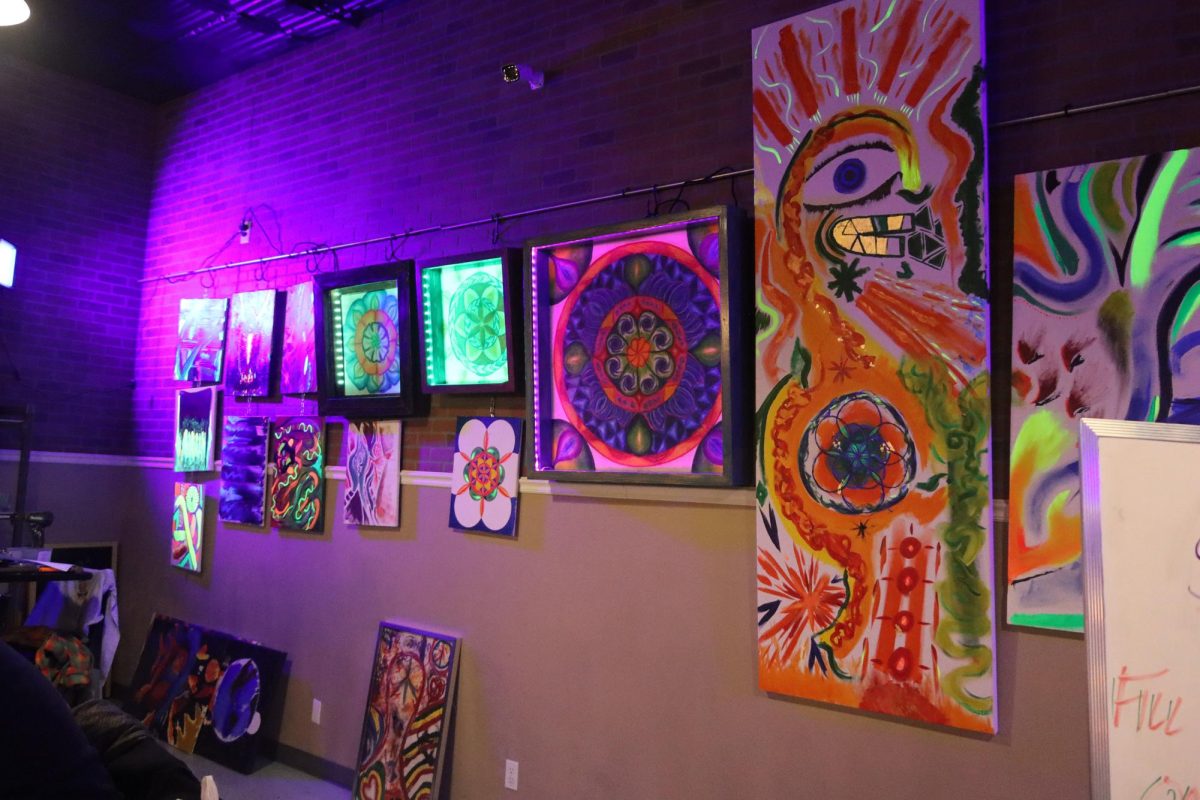

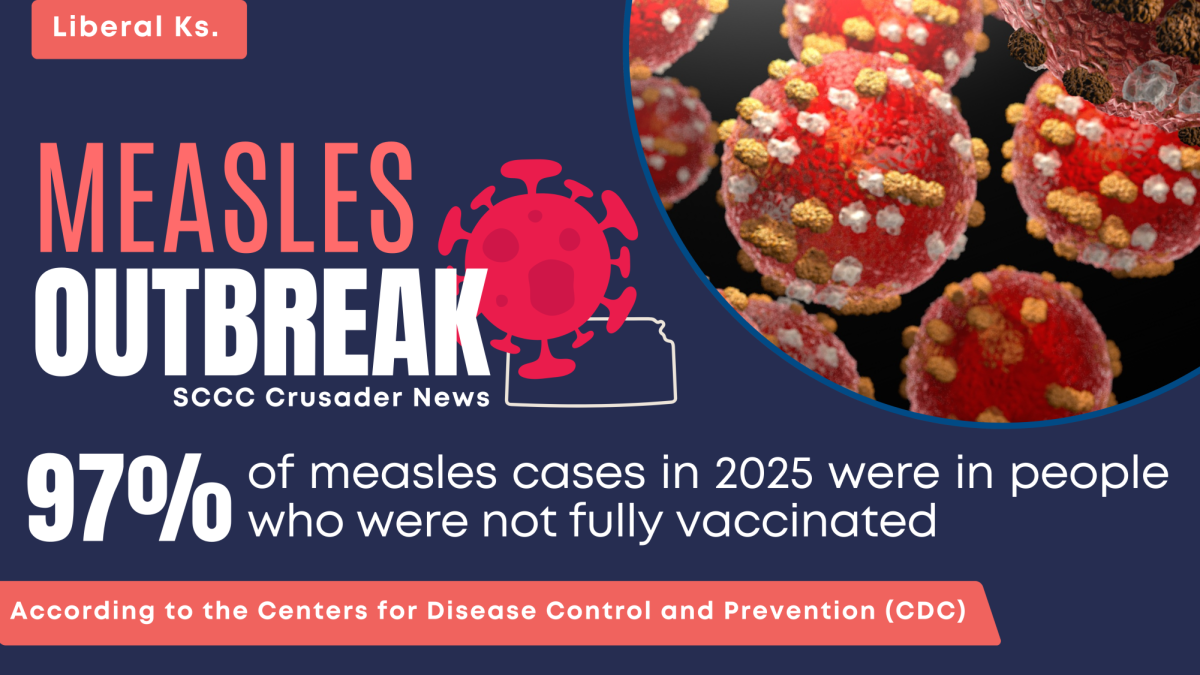








![The sophomores were recognized on the field instead of walking across the stage during their doubleheader. They received their diplomas and a picture of themselves playing during their career at Seward. [Pictured left to right are Dylan Day, Reed Thomas, Jase Schneider, Mason Martinez, Gannon Hardin, Brody Boisvert, and Zach Walker]](https://crusadernews.com/wp-content/uploads/2022/05/WEBDSC_0275-900x454.jpg)





